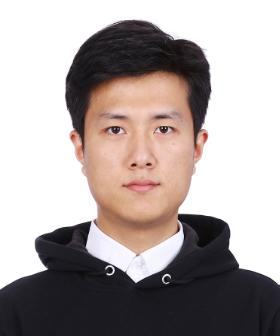Main > HW567
Huijiang Wang 
Position: Research Student; Marie Sklodowska-Curie Fellow
E-mail: hw567 [at] cam.ac.uk
Office Location: IE1-04
Supervisor: Professor Fumiya Iida
Background
Huijiang Wang is a PhD candidate with the Biologically Inspired Robotics Laboratory, Department of Engineering, University of Cambridge, U.K.. He is the European Union’s Marie Sklodowska-Curie ESR fellow in soft robotics. His research interests include robotic manipulation, soft robotics, tactile sensing and machine learning. URL: birlab.org
Publication
*Peer-reviewed journals:*
Wang, H., Zhang, X, & Iida, F. (2024). Human-Robot Cooperative Piano Playing with Learning-Based Real-Time Music Accompaniment. IEEE Transactions on Robotics (Accepted).
Wang, H., Terryn, S., Wang, Z., Van Assche, G., Iida, F., & Vanderborght, B. (2023). Self‐Regulated Self‐Healing Robotic Gripper for Resilient and Adaptive Grasping. Advanced Intelligent Systems , 5(12), 2300223.
Wang, H., Nonaka, T., Abdulali, A., & Iida, F. (2023). Coordinating upper limbs for octave playing on the piano via neuro-musculoskeletal modeling.
Bioinspiration & Biomimetics,
18(6), 066009.
Sirithunge, C.,
Wang, H., & Iida, F. (2024). Soft touchless sensors and touchless sensing for soft robots.
Frontiers in Robotics and AI,
11, 1224216.
Legrand, J.,
Wang, H., Iida, F., & Vanderborght, B. (2023). A Variable Stiffness Anthropomorphic Finger Through Embodied Intelligence Design.
IEEE Robotics and Automation Letters.
Wang, Z., Terryn, S.,
Wang, H., Legrand, J., Safaei, A., Brancart, J., ... & Vanderborght, B. (2023). Self‐Closing and Self‐Healing Multi‐Material Suction Cups for Energy‐Efficient Vacuum Grippers.
Advanced Intelligent Systems,
5(10), 2300135.
Wang, H., & Bai, S. (2022). A versatile method for target area coverage analysis with arbitrary satellite attitude maneuver paths.
Acta Astronautica,
194, 242-254.
Wang, H., Han, C., & Sun, X. (2019). Analytical field-of-regard representation for rapid and accurate prediction of agile satellite imaging opportunities.
Journal of Astronomical Telescopes, Instruments, and Systems,
5(3), 037001-037001.
Peer-reviewed conference proceedings:
Wang, H., Howison, T., Hughes, J., Abdulali, A., & Iida, F. (2022, April). Data-driven simulation framework for expressive piano playing by anthropomorphic hand with variable passive properties. In
2022 IEEE 5th International Conference on Soft Robotics (RoboSoft) (pp. 300-305). IEEE. (Best paper finalist).
Wang, H., Thuruthel, T. G., Gilday, K., Abdulali, A., & Iida, F. (2022, May). Machine learning for soft robot sensing and control: A tutorial study. In
2022 IEEE 5th International Conference on Industrial Cyber-Physical Systems (ICPS) (pp. 01-06). IEEE.
Wang, H., & Iida, F. (2023, October). Self-organization in Piano Playing: Why Pattern Transition?. In
IOP Conference Series: Materials Science and Engineering (Vol. 1292, No. 1, p. 012015). IOP Publishing.
Wang, H., Zhang, Y., & Iida, F. (2023, September). Reduced-Order Modeling of a Soft Anthropomorphic Finger for Piano Keystrokes. In
Annual Conference Towards Autonomous Robotic Systems (pp. 405-416). Cham: Springer Nature Switzerland.
Wang, H., & Iida, F. (2024). Emotional Alignment for Human-Robot Cooperation in Musical Tasks. IOP Conference Series: Materials Science and Engineering. 2024. (Accepted)

